Fig, shows two indentical capacitors C1andC2 each of 1μF capacitance connected to a battery of 6V. Inditally, swich S is closed. After some time, the swich S is left open and dielectric slabs of K = 3 are inserted to filll completely the space between the plates of two capacitors . How will (i) the charge and (ii) potential difference between the plates of the capacitors be affected after the slabs are inserted ?
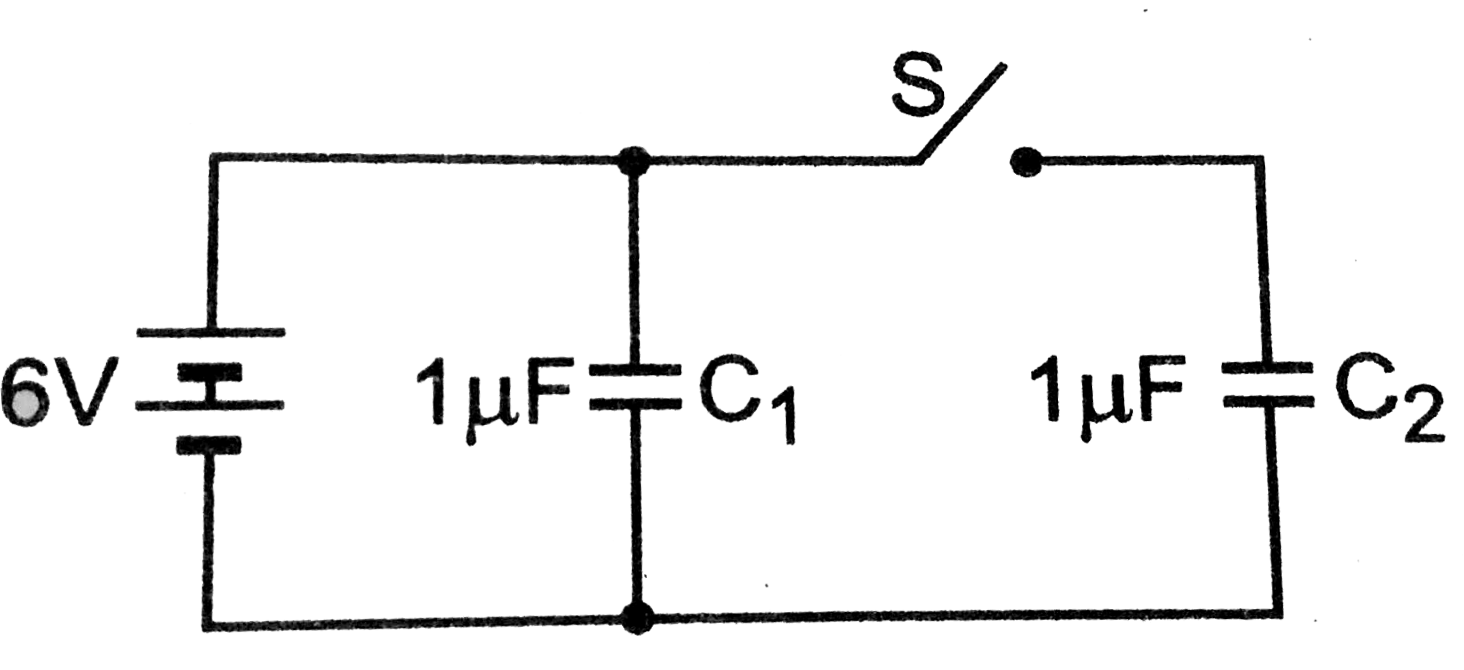
When switch S is opened and dielectric is introduced then capacity of each capacitor C'=KC=3×1×10−6F
=3×10−6F
So, charge on C1.
E1=3CV=3×10−6×6=18×10−6C
Charge on eah capacitor will become 3 time.
Potenial difference on C1 will remain same i.e., 6V.
∴ potential difference of C2will be, V1=Q3C=V3=63=2V.
Topper's Solved these Questions
- BOOK - XII BOARDS PREVIOUS YEARCHAPTER - XII BOARDSEXERCISE - SET-II, DELHI BOARD8videos
XII BOARDS
- BOOK - XII BOARDS PREVIOUS YEARCHAPTER - XII BOARDSEXERCISE - SET-III, DELHI BOARD8videos
XII BOARDS
- BOOK - XII BOARDS PREVIOUS YEARCHAPTER - XII BOARDSEXERCISE - SET -III6videos
XII BOARDS
- BOOK - XII BOARDS PREVIOUS YEARCHAPTER - SAMPLE PAPER 2019EXERCISE - SECTION D6videos
SAMPLE PAPER 2019
Similar Questions
Fig. shows two identical capacitors C1andC2 each of 1μF capacitance, connected to a battery of 6V Initially,swich S is closed. After sometime, S is left open and dielectric slabs of dielectric constant K = 3 are instered to fill compelelty the space between the plates of two capacitors. How will the (i) charge and (ii) potential difference between the plates of the capacitors be affected after teh slabs are inserted ?
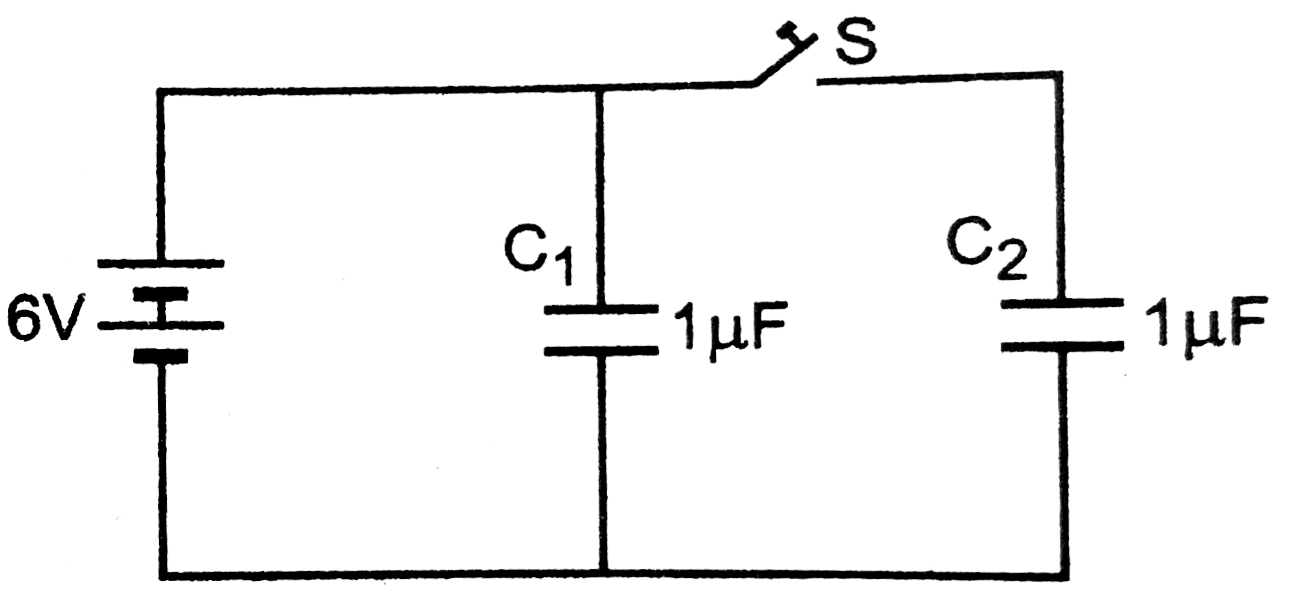 View Solution
View SolutionFigure shows two identical capacitors C1andC2 each of 2μF capacitance, connected to a battery of 5 V. Initially switch 'S' is closed. After some time 'S' is left open and dielectric slavs of dielectric constant K = 5 are inserted to fill completely the space between the plates of the two capacitors. How will the (i) charge and (ii) potential difference between the plates of the capacitors be affected after the slabs are inserted?
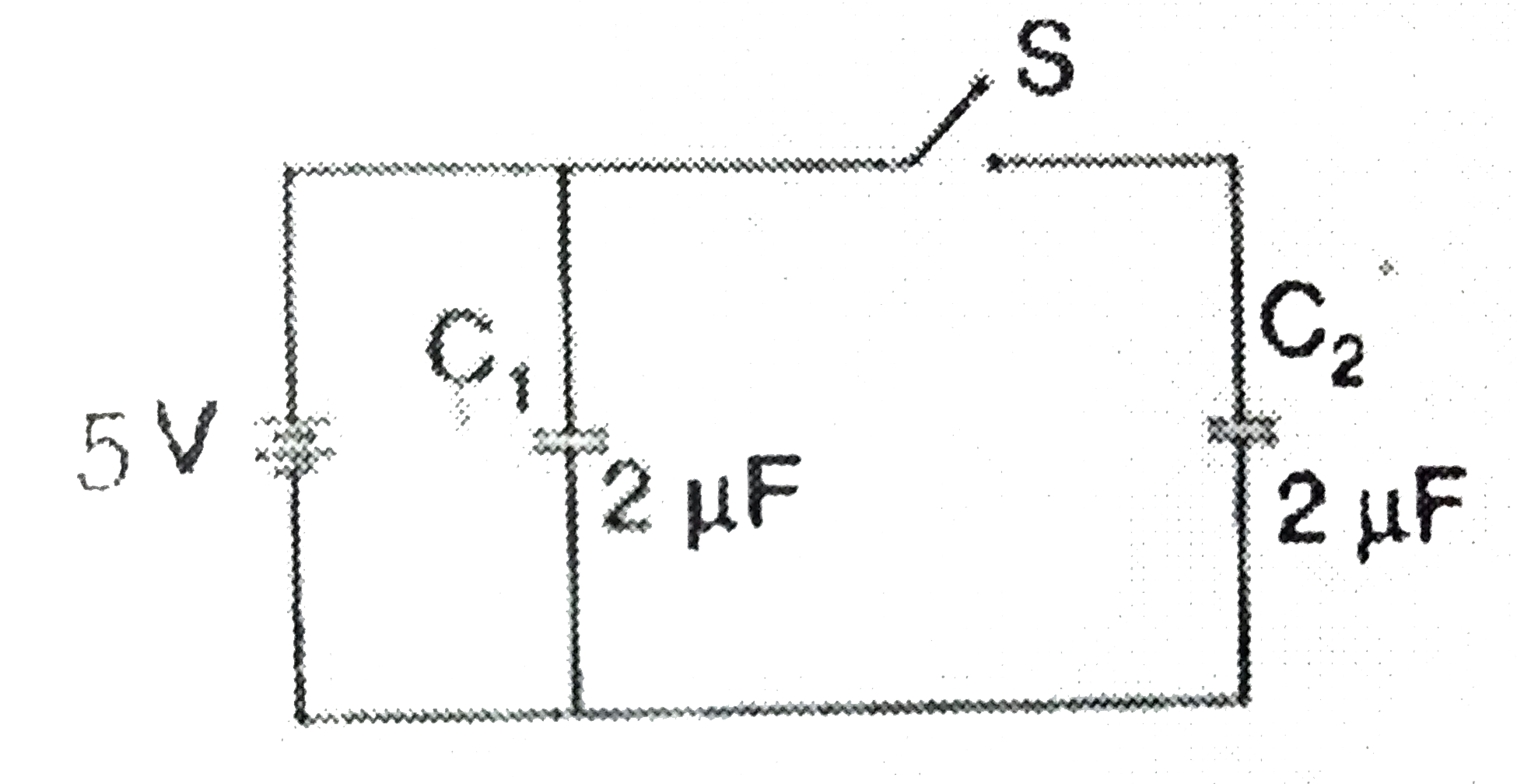 View Solution
View Solution
Knowledge Check
- Question 1 - Select One
Two capacitors of capacitance C and nC are connected in parallel. A battery of emf V is connected across the combination. Now the battery is removed and a dielectric constant K is inserted filling the space between the plates of capacitor of capacitance C. The final potential difference across the system is
An+kn+1Bn+1n+kCn−1n+KVDn+1n−kV - Question 2 - Select One
A capacitor C is charged to a potential difference V and battery is disconnected. Now if the capacitor plates are brough close slowely by some distance:
Asome +ve work is done by external agentBenegry of capacitor will decreaseCenegry of capacitor will increaseDnone of the above
Figure shows two idential capacitors, C1andC2, each of 1μF capacitance connected to a battery of 6 V. Initially switch 'S' is closed. After sometime 'S' is left open and dielectric slabs of dielectric constant K = 3 are inserted to fill completely the space between the plates of the two capacitors. How will the (i) charge and (ii) potential difference between the plates of the capacitors be affected after the slabs are inserted?
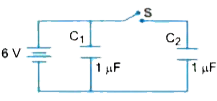 View Solution
View SolutionFigure shows two identical caoacitors C1andC2 each of 1.5μF caoacitance, connected to a battery of 2 V. Initially switch 'S' is closed. After some time 's' is left open and dielectric slabs of dielectric constant K=2 are inserted to fill completely the space between the plates of the two capacitors. How will the (i) charge and (ii) potential difference between the plates of the capacitors be affected after the slabs are inserted.
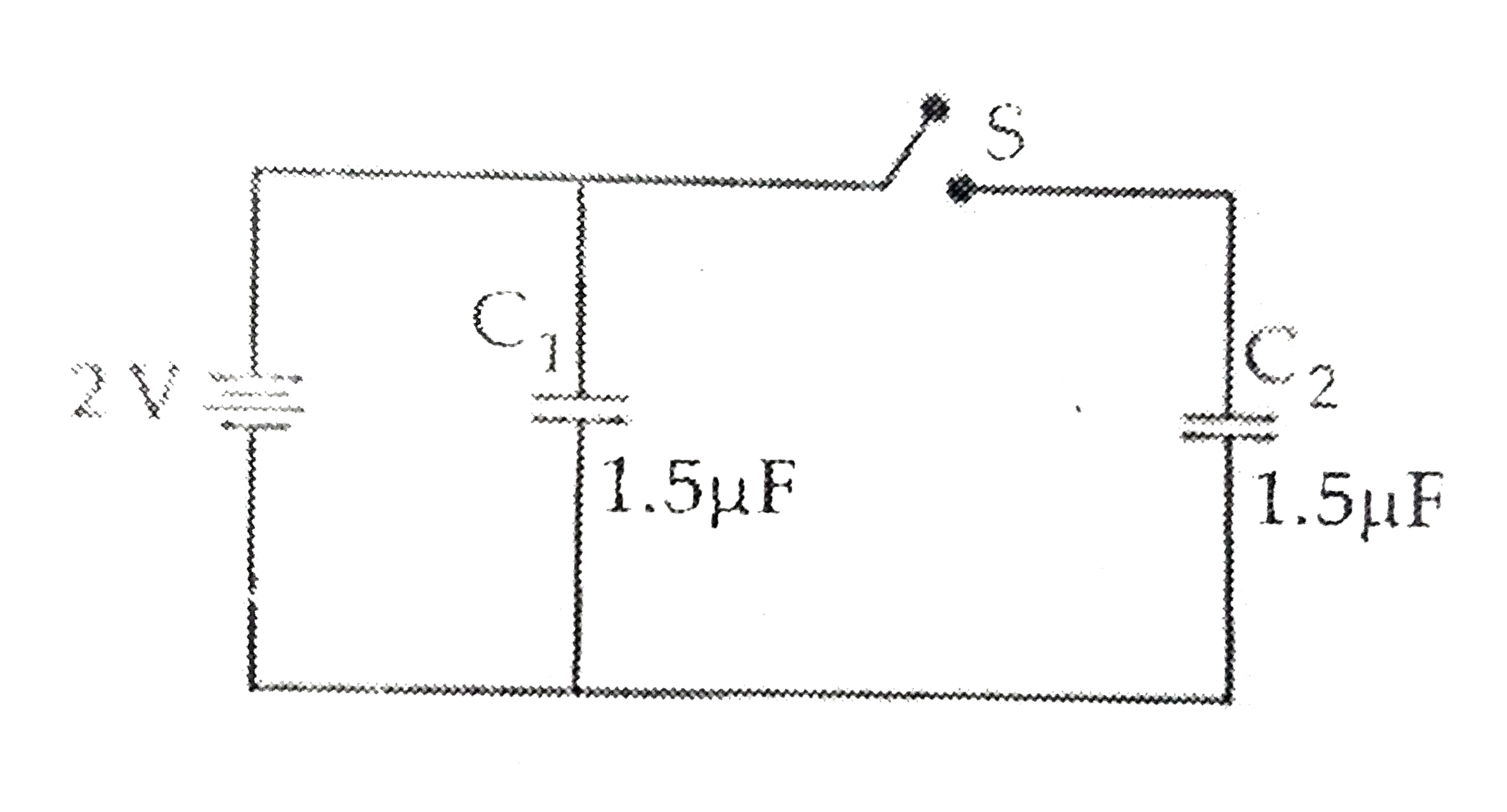 View Solution
View SolutionTwo capacitors C1 and C2 are connected to a battery of 6V as shown in Fig. Find the charge on each capacitor.
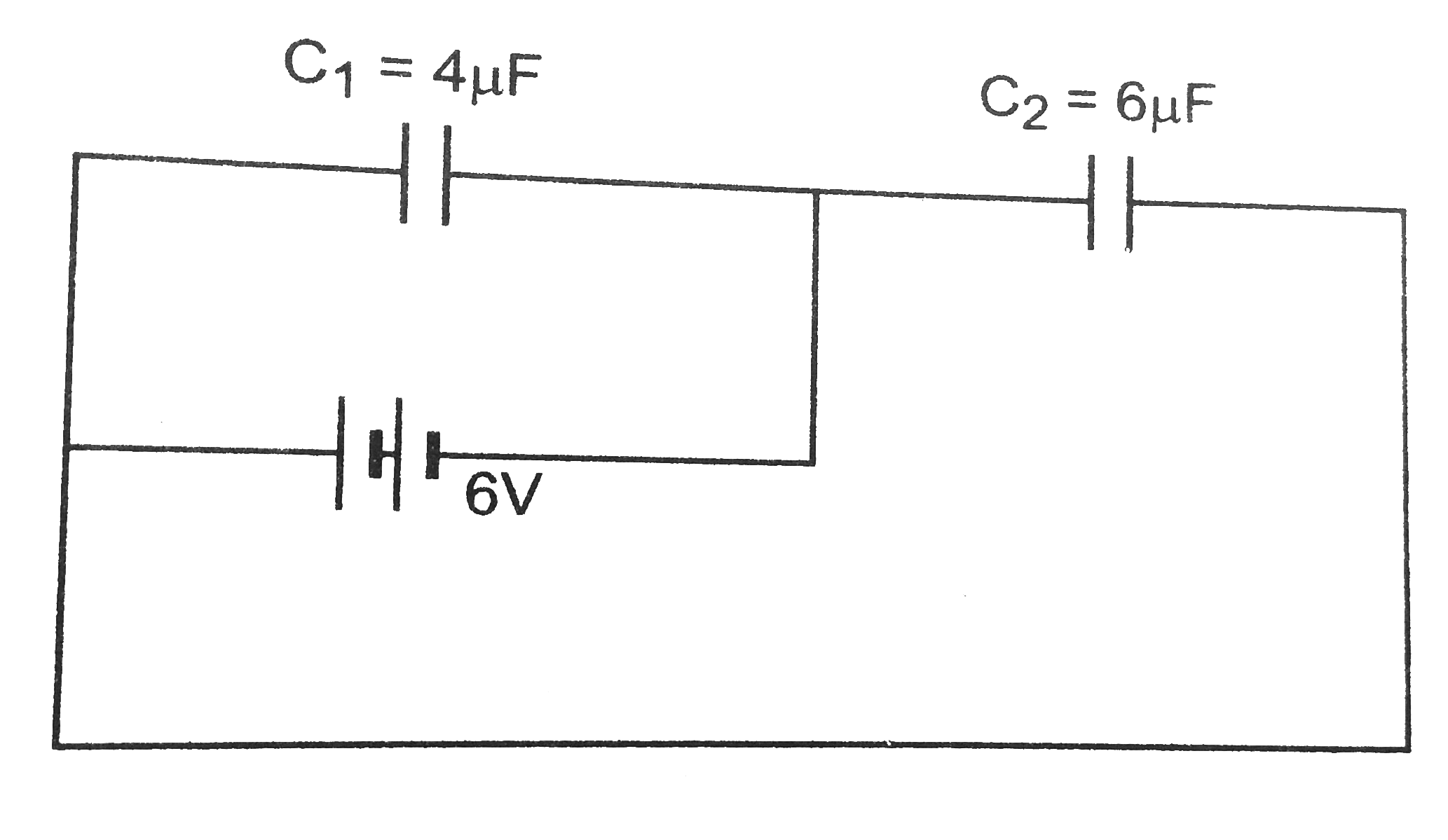 View Solution
View SolutionThe answer to each of the following questions is a single-digit integer ranging from 0 to 9. Darken the correct digit.
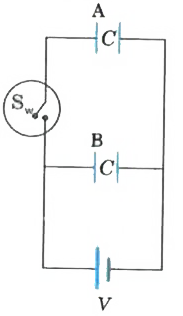
Two identical air capacitors of capacitance C are connected to a battery of EMF V and initially switch is closed for a long time. After the switch is opened, identical dielectric slabs are inserted in between the plates of both the capacitors and it is found that energy stored in capacitor B becomes nine times of the energy stored in capacitor A. What is the dielectric constant of the slab?View SolutionA parallel plate capacitor is charged by a battery . After sometime the battery is disconnected and a dielectric slab with its thickness equal to the plate separation is inserted between the plates . How will potential difference between the plates ? Justify your answer
View SolutionA parallel plate capacitor is charged by a battery. After some time the battery is disconnected and a dielectric slab of dielectric constant K is inserted between the plates. How would (i) the capacitance, (ii) the electric field between the plates and (iii) the energy stored in the capacitor, be affected ? Justify your answer.
View Solution

